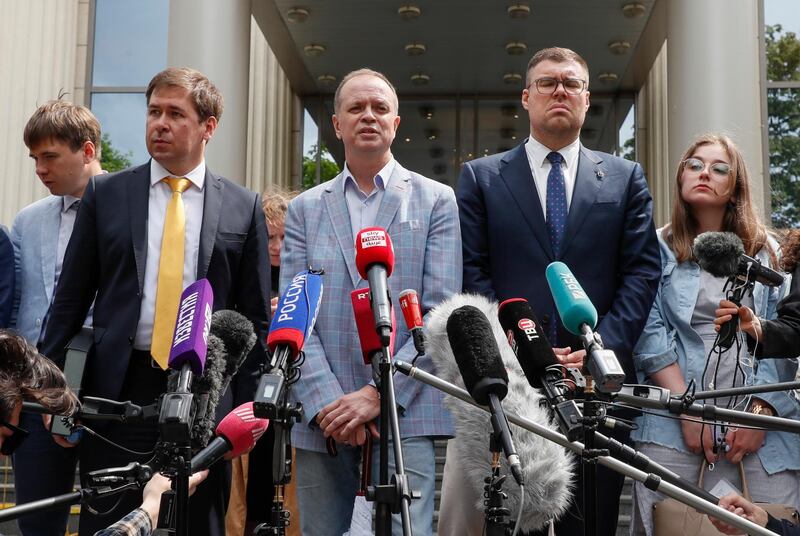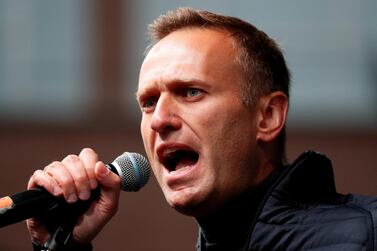A court in Moscow Wednesday called the political organisations of jailed Kremlin critic Alexei Navalny "extremist" and barred them from operating in Russia.
It was a further blow to the embattled opposition before parliamentary elections.
The ruling could spell the end for Navalny's organisation, which shone a light on corruption at the highest levels, and his network of political offices that extended his reach to regular Russians beyond Moscow.
"It was found that these organisations not only disseminated information that incited hatred and enmity against government officials, but also committed extremist actions," Alexei Zhafyarov, a spokesman for the prosecutors, said outside the court.
Moscow City Court said after a 12-hour session held behind closed doors that the judge's decision was binding with immediate effect.
Navalny, 45, who was jailed this year on his return to Russia from Germany, where he had been recovering from a poisoning, vowed to continue fighting despite the ruling.
In an Instagram post, he said his supporters would have to change how they worked and urged them to "adapt".
"But we will not retreat from our goals and ideas," Navalny said. "This is our country and we have no other."
Prosecutors in April requested that his network of regional offices and his Anti-Corruption Foundation be given the "extremist" designation, saying the group was plotting an uprising with support from the West.
Foundation lawyers on Wednesday said they would appeal against the ruling within 10 days.
Navalny's most prominent aides, several of whom are now living in neighbouring Lithuania, said the Russian opposition would not be distracted by the ruling.
"We'll keep working," Leonid Volkov, who was the head of the regional network, tweeted on Wednesday evening from Lithuania.
UK Foreign Secretary Dominic Raab described the ruling as "perverse".
"It is another Kafka-esque attack on those standing up against corruption and for open societies, and is a deliberate attempt to effectively outlaw genuine political opposition in Russia," Mr Raab said.
The Foundation routinely published investigations into accusations of corruption by officials at all levels of government.
The allegations spurred massive street demonstrations that were met with swift and brutal police crackdowns condemned by leaders of western countries.
Navalny's network of regional offices had helped to organise his smart-voting strategy, which urges voters to cast ballots for the candidate most likely to defeat Kremlin-linked opponents.
In his Instagram post Wednesday, Navalny urged Russians to register for the campaign, saying authorities were "terribly afraid" of the strategy.
Before parliamentary elections in September, in which the deeply unpopular ruling United Russia party is expected to struggle, legislators passed a law banning members and sponsors of "extremist" groups from running in the polls.
The bill, which was signed into law by Mr Putin in June, is expected to be used against allies of Navalny in the coming vote.
The law affects senior members and activists of Navalny's team, and could hit tens of thousands of Russians who supported its work through donations.
Leaders of such groups will not be able to run in parliamentary elections for five years, while members and those who helped to finance their work will be banned for three years.
Navalny, Moscow's most outspoken critic at home, survived a near-fatal nerve agent attack last summer that he blames on the Kremlin.
Returning to Russia in January after months of treatment in Germany, he was imprisoned for two and a half years on old embezzlement charges in February.
Russian authorities had for years tolerated opposition groups, including Navalny's political movement.
But Kremlin critics say authorities are now trying to remove vestiges of dissent as fatigue is growing with Mr Putin's two-decade rule.
US President Joe Biden has said in advance of a summit with the Russian leader in Geneva next week that he will press Mr Putin on the Kremlin's human rights record.







